
With continued popularity, increasing evidence in the literature, decreasing capital investment as well as integration into general residency training, 3D printing is becoming a well-accepted practice enhancement in both private and academic settings. The purpose of this session is to familiarize the audience with the various applications of 3D printing while showcasing the feasibility of point-of-care service in various clinical settings. The session aims to allow attendees to take away practice-building information from this engaging and interactive forum. Code: ODAM21SS06
-
You must log in to register
- Member - $50
- Resident Member - Free!
- Allied Staff Member - $50
- Professional Staff Nonmember - $100
- Other Nonmember - $100
- More Information
-
You must log in to register
Over the last 100 years, the specialty of oral and maxillofacial surgery has evolved into a diverse and exciting profession. Originally exodontists, oral and maxillofacial surgeons are now the experts in facial trauma, orthognathic surgery and reconstructive surgery. This symposium will highlight advances over the last century since the development of AAOMS. Code: ODAM18GS01
-
You must log in to register
- Member - Free!
- Resident Member - Free!
- Allied Staff Member - Free!
- Professional Staff Nonmember - $200
- Other Nonmember - $200
- More Information
-
You must log in to register
Violence rates in healthcare have doubled since 2011, and nearly three-quarters of all violence-related nonfatal workplace injuries and illnesses in 2018 were incurred by healthcare workers. Workplace violence poses a significant threat to the health, safety and well-being of healthcare workers and has negative implications for their productivity, retention and the quality of care they provide to patients. As U.S. healthcare workers in the private sector are five times more likely to experience nonfatal violence-related injury compared to workers in all other private industries combined, it is imperative that OMSs and practice staff understand the types and sources of workplace violence. Attendees of this 90-minute webinar will learn strategies and techniques for mitigating this risk to their employees and their patients. Code: WPM231018R
-
You must log in to register
- Member - Free!
- Resident Member - Free!
- Allied Staff Member - Free!
- Professional Staff Nonmember - $265
- Other Nonmember - $265
- More Information
-
You must log in to register
ABOMS Board member David Powers, DMD, MD, will discuss the ABOMS certification process and best practices for preparing for the examinations. The 2022 Qualifying Examination will be the first administration using the Board’s updated blueprint. This 60-minute webinar will explain the Board’s changes and how they may impact studying. Code: WCE211103R
-
You must log in to register
- Member - Free!
- Resident Member - Free!
- More Information
-
You must log in to register
The management of temporomandibular joint pain and limited function may involve non-surgical treatment, arthrocentesis, arthroscopy, arthroplasty and total joint replacement. There is no consensus on an appropriate algorithm to follow to ensure good patient outcomes while also reducing the number of surgical procedures needed. Despite the lack of a consensus, there is sufficient evidence to provide relatively robust recommendations that can assist clinicians in developing patient-centric algorithms that can greatly improve the diagnosis and treatment of patients with internal derangement and associated pain and limited function. Code: ODAM22SS08
-
You must log in to register
- Member - $50
- Resident Member - Free!
- Allied Staff Member - $50
- Professional Staff Nonmember - $100
- Other Nonmember - $100
- More Information
-
You must log in to register
This session will focus on understanding and utilizing metrics from practice management software systems to make better business decisions. OMS practices often do not understand the software system reports, the add-on data intelligence programs and, more importantly, what the data are telling them. Learn the key OMS productivity indicators within practice management software, what the reports mean and how to implement the changes that are reflected in these reports. Code: ODAM23PM15
-
You must log in to register
- Member - $100
- Resident Member - $100
- Allied Staff Member - $100
- Professional Staff Nonmember - $200
- Other Nonmember - $200
- More Information
-
You must log in to register
One dental implant challenge is reconstruction of the severely resorbed maxilla, especially in patients with multiple previous failed attempts at dental implant placement and full-arch implant rehabilitation. Zygomatic implants were first used for reconstruction of large maxillofacial defects; now they are commonly used in patients with terminal dentition with atrophic maxillary bone to provide implant-retained fixed and removable prosthesis utilizing the zygomatic bones to anchor the dental implants. This comprehensive, step-by-step session will cover the zygomatic implant surgical and presurgical planning, surgical procedures and digital protocols – including multiple techniques commonly utilized to place and restore these implants. Code: ODAM23SSOD19
-
You must log in to register
- Member - $50
- Resident Member - Free!
- Allied Staff Member - $50
- Professional Staff Nonmember - $100
- Other Nonmember - $100
- More Information
-
You must log in to register
The provision of dentoalveolar surgical procedures is the most common part of most oral and maxillofacial surgeons' practice. This session will focus on adjunctive procedures that can provide patients with improved outcomes and focus on aspects that can reduce complications. It also will include step-by-step clinical images and information so the OMS can integrate these procedures into practice. Topics to be reviewed include second molar uprighting procedures, marsupialization of large radiolucent lesions, coronectomy procedures (including indications, surgical procedure and long-term outcomes) as well as apical surgery (including current techniques and an algorithm for when to treat/when to extract). Code: ODAM21SS23
-
You must log in to register
- Member - $50
- Resident Member - Free!
- Allied Staff Member - $50
- Professional Staff Nonmember - $100
- Other Nonmember - $100
- More Information
-
You must log in to register
The provision of dentoalveolar surgical procedures are an integral part of the OMS practice. This program will review topics that the OMS can incorporate into their practice and provide clinical and evidence-based outcomes for the procedures. Procedures to be reviewed include second molar surgical uprighting, coronectomy and management of large radiolucent lesions of the jaws. Code: ODAM22SS25
-
You must log in to register
- Member - $50
- Resident Member - Free!
- Allied Staff Member - $50
- Professional Staff Nonmember - $100
- Other Nonmember - $100
- More Information
-
You must log in to register
The intraoral vertical ramus osteotomy (IVRO) is a technically straightforward and useful technique with many applications, including management of horizontal mandibular excess, mandibular asymmetry and correction of minor mandibular deficiency. IVRO has a significant advantage over sagittal split osteotomy (SSO) from the standpoint of inferior alveolar nerve injury and risk of unfavorable split. IVRO also may be more forgiving than SSO in patients with TMJ disorders because of a condylotomy effect. IVRO has likely been criticized as a mainstream ramus osteotomy, as maxillomandibular fixation (MMF) is required with the traditional technique. Internal fixation can be readily applied to IVRO and predictably eliminate MMF. Surgical protocols for safe IVRO with internal fixation technique will be discussed in detail during this 60-minute webinar. Code: WCE220323R
-
You must log in to register
- Member - $50
- Resident Member - Free!
- Allied Staff Member - $50
- Professional Staff Nonmember - $100
- Other Nonmember - $100
- More Information
-
You must log in to register
| Access Date | Quiz Result | Score | Actions |
|---|
Featured Course
AAOMS Members, register for the featured complimentary course: State-of-the-art Trauma Orbital Evaluation.
Special CE Online Discounts
Enjoy new CE Online offerings by visiting our Special CE Online Discounts page!
Medication Access and Training Expansion (MATE) Act
Visit CEonline.AAOMS.org/MATEAct for a list of AAOMS’s current CE online offerings that appear to count toward the eight hours required by the MATE Act. For a limited time, these courses are offered complimentary to AAOMS Members.










